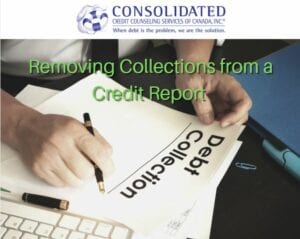The Collection Agencies Act can help Canadians dealing with abusive and harassing collectors. From dodging constant collections calls to exaggerated threats of legal action and criminal prosecution, the stress of dealing with collectors can affect your ability to focus on your job and the peace in your household.
For a collection agency to collect from you, it must adhere to the rule of law. The above collections tactics may be prohibited practice under the Collections Agencies Act. This makes it essential to know your rights when it comes to collections so that you can protect yourself from abusive practices.
The act Canada lawmakers put together is similar to the Collection and Debt Services Act. Learn more about your rights when agencies contact you regarding the payment of debt.
How the Collection Agencies Act Protects You
The Collection Agencies Act has a strict set of rules requiring collection agencies to adhere or face serious repercussions.
- Harassing language or treatment: Collectors are not allowed to converse with you in any way that may sound like harassment. This can range from using derogatory language in conversations to making excessive calls in a single day. A collector cannot curse at you, yell, or make threats that are not allowable within the boundaries of the law, such as threatening jail time for not paying your credit card bill.
- Inappropriate calling hours: A collector can only call you at certain times of the day. They can only make calls Monday through Saturday (7am – 9pm), and on Sundays (1pm – 5pm). Collectors cannot call during statutory holidays.
- Withholding information: The collector must also disclose the bank, lender, or creditor that initially held the debt in question. They cannot withhold the name of the original debtor from you for any reason.
- Legal action without prior notification: A collector may not pursue legal action against you to collect on a debt without notifying you in writing first. This means a collector can’t take you to court to make you pay on a debt unless they first inform you of the intent to take that action.
- Contact with friends, family, or co-workers: A collections agent can’t call your parents, siblings, other relatives, friends, neighbours, boss, or co-workers to collect on your debt. They must deal directly with you. Similarly, they can’t ask you about debts for other persons. They can only contact a relative or friend if he or she appears as a co-signer or co-borrower on the account.
Has a collector committed an offence according to the above laws? You have options.
Understanding Your Rights in Collections
The collections process is determined by government law, act or regulation. Some collectors may try to make you think that they have more power over your life than they have in an attempt to get you to pay your debts. They may tell you they can have you thrown in jail. Some may say they’ll take your home or repossess your car.
They may tell you they can contact your boss to have you fired or have your wages garnished. Collectors may even threaten to have your name published somewhere, so you’re blacklisted from ever getting credit again.
None of the above is true.
To repossess any property to satisfy an outstanding balance on a credit card debt, the collector would have to obtain a bankruptcy judgment against you. They can’t just send someone to repossess your property.
Nor can they contact your employer under any circumstance. Additionally, they can’t publish blacklists barring you from credit. In fact, even negative remarks on your credit report can only remain up to six years. Finally, you can’t go to jail for not paying a credit card back.
What to Do with Abusive Collectors
If a collector crosses the line, you have recourse. Contact the local government office for your province or territory to file a complaint. Penalties for collections abuse vary by location, so the laws and consequences will be specific to your area.
You can file a complaint to the Financial Consumer Agency of Canada if you’re dealing with a collection agency working on behalf of a federally regulated financial institution.
Also, keep in mind that once you obtain representation, such as a bankruptcy attorney, a licensed insolvency trustee, or a credit counsellor, the collectors must speak with that individual. They may not contact you directly once you have indicated you have representation.
Learn More About Your Consumer Rights
If you’re currently dealing with collectors because of past-due credit card debts, we may be able to help. Enrolling in a debt management program means you have someone representing you concerning your debts so that you can refer collectors to us, and we can deal with them for you. This can provide peace of mind in addition to the debt relief you’ll get with the program.
Contact Consolidated Credit today at (844)-402-3073 to see if credit counselling and a debt management program are the right options for you.





